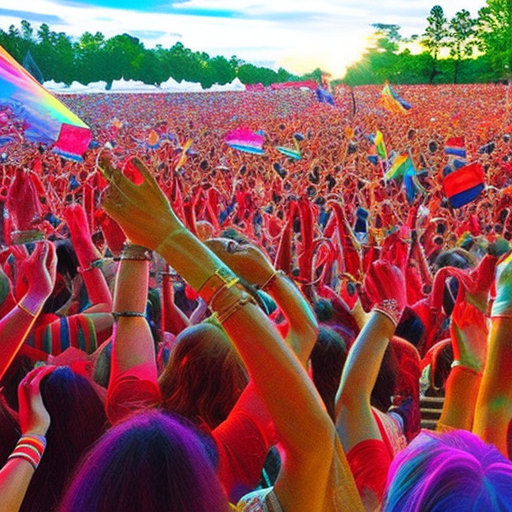Summary:
Music festivals are large-scale events that bring together a diverse range of musical acts and audiences. These festivals often span multiple days and feature performances across various genres. They provide a unique experience for music lovers, offering a chance to see their favorite artists, discover new talent, and immerse themselves in a vibrant and energetic atmosphere. Music festivals have become a significant part of popular culture, attracting millions of attendees worldwide each year.
History and Evolution:
Music festivals have a rich history that dates back to ancient times. In the 18th and 19th centuries, classical music festivals gained popularity, showcasing orchestral performances and opera. However, it was in the 1960s and 1970s that music festivals truly exploded in popularity, with events like Woodstock and the Isle of Wight Festival becoming iconic symbols of the counterculture movement. Since then, music festivals have continued to evolve, incorporating a wide range of genres, from rock and pop to electronic and hip-hop.
Types of Music Festivals:
There are various types of music festivals, each catering to different musical tastes and preferences. Some festivals focus on a specific genre, such as jazz, blues, or country, while others embrace a more eclectic mix of styles. Additionally, there are festivals that celebrate specific cultural traditions, like reggae festivals or world music festivals. Some festivals also feature a combination of music and other art forms, such as visual art installations, theater performances, and film screenings.
Key Elements of Music Festivals:
Music festivals are characterized by several key elements that contribute to their unique atmosphere. One of the most important aspects is the lineup of artists and bands, which can range from well-established acts to up-and-coming talent. The venue and stage design also play a significant role, with many festivals taking place in outdoor settings, such as parks or fields, and featuring elaborate stage setups and lighting effects. Another crucial element is the communal experience, as festivals bring together people from diverse backgrounds who share a common love for music.
Impact and Significance:
Music festivals have a profound impact on both the music industry and the communities in which they take place. For artists, festivals provide a platform to reach a large and diverse audience, potentially boosting their careers and increasing their fan base. Festivals also contribute to the local economy, attracting tourists and generating revenue for businesses in the surrounding area. Moreover, festivals often promote cultural exchange and foster a sense of community, as attendees come together to celebrate their shared passion for music.
Challenges and Future Trends:
While music festivals are immensely popular, they also face various challenges. One of the main concerns is ensuring the safety and well-being of attendees, as large crowds and outdoor settings can pose logistical and security risks. Additionally, festivals must navigate the ever-changing landscape of the music industry, adapting to new trends and technologies to stay relevant. In recent years, there has been a rise in virtual and livestreamed festivals, allowing people to experience the music from the comfort of their homes. This trend is likely to continue, alongside efforts to make festivals more sustainable and environmentally friendly.
In conclusion, music festivals are dynamic and vibrant events that bring together music lovers from all walks of life. With their diverse lineups, immersive atmospheres, and cultural significance, these festivals have become an integral part of the global music landscape. Whether it’s dancing in a crowd of thousands or discovering a new favorite artist, music festivals offer an unforgettable experience that continues to captivate audiences worldwide.












